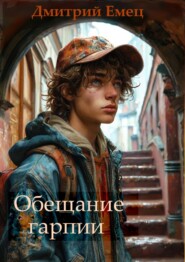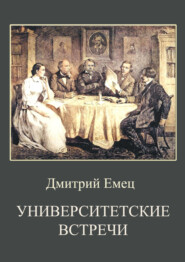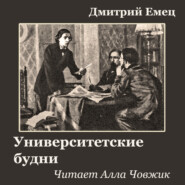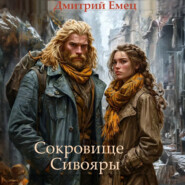По всем вопросам обращайтесь на: info@litportal.ru
(©) 2003-2025.
✖
Methodius Buslaev. Third Horseman Of Gloom
Настройки чтения
Размер шрифта
Высота строк
Поля
If her legs had earlier resembled skin wrapping around skeletal bones, then these could belong to a model. Strong, smooth, tawny. With perfectly formed knees. The thighs of a runner or a dancer. The calves were muscular, but not excessively. Beautiful feet. Obedient new legs, which would obey any desire. Run, swim, or lift her to at least the ninth floor without rest. They would drive one crazy, attracting attention…
Irka suddenly wanted to cry. Throw a tantrum in the spirit of drama theatre. Throw something at the kitchen window so that it would shatter, sharp as resentment, cutting like disappointment. Something moderately heavy that before hitting the window would have time to draw a beautiful arc in the air.
She felt like a child who had jumped into a toy store without permission, picked up an expensive doll and twirled it around, knowing that now a stern voice would sound and she would have to put it back in place. “Where are you now? Do you want me to search for you everywhere? I’ll have a talk with you on the street!”
However, seconds had passed wearily, but the terrible voice still did not sound. The old dead legs also did not return.
Irka got up, staggering. She got up and was surprised that the skill of this movement was not forgotten or lost. She took a step, then another. The apartment seemed to her small, unfamiliar, and oppressive. Twice she tossed her head in alarm, until she realized what the reason was: she was afraid of hitting the ceiling. She was used to seeing the apartment from the wheelchair or the bed, and the sensation of extent remained in her as before, diminished, from the wheelchair or the bed.
Irka clenched and unclenched her fingers. They remained as before, but in reality had subtly changed. The reserve of strength she felt was not a reserve of mortal strength. Irka suddenly realized that if she should wish, she could push through the wall of the home with her hand, as if through paper. She felt the flow of blood – crimson, intoxicating, like red wine. Fresh spring forces seethed in her and exploded outside.
The memory of past incarnations and dormant magic skills overwhelmed her, but Irka forced the memory to retreat, to lay low. She felt that this knowledge was still dangerous, since it could submerge her own, as yet fragile consciousness.
Irka felt a sharp prick of curiosity. Having walked around the wheelchair, she entered the bathroom and immediately, without allowing herself new hesitation, looked in the mirror.
From the mirror splattered with toothpaste – Granny always brushed her teeth with the zeal of scouring saucepans with burnt food – a beautiful young face looked at her. Irka both recognized and did not recognize herself. Yes, this was her. But simultaneously not her. The difference between her past and present appearance was so great, as if a genius had repaired the picture of a mediocre artist. Everything remained as before – the nose, face, hair – but the girl in the mirror was different.
Irka examined herself for a long, very long time. When each feature had been imprinted in memory, she, obeying an unexpected impulse, squinted and with changed sight saw a swan and a white she-wolf. Not those that had died before her eyes on the kitchen floor, but others, her own, having subtly incorporated the features of Irka herself. And Irka understood that, at any instant on a moment’s notice, she would be able to become a swan or a wolf. However, she still hesitated, knowing that the time had not yet come.
“I’m a valkyrie! A swan maiden. A wolf!” Irka shouted in a full voice. The fear that everything could disappear had vanished. Everything was immutable.
The mirror sprayed into fragments. Some jumped in the drain, others to the floor. Irka looked guiltily at the sagging wooden frame. “Sorry, mirror! I’m simply a nitwit! I forgot that you knew me before!” she said and, after stepping over the fragments, returned to her room. On the computer monitor, which continued to live its life, new lines flared up.
Anika-voin: Hey, Rikka, answer! Did they kill you or not? Who was that bum in the kitchen?
Miu-miu: What are you, sick? How will she answer you if they smashed her for real?
Anika-voin: But I have to know when I should worry! Maybe I’m already mourning. Maybe my fingers are already flying over the keyboard?
Miu-miu: Vaporize, loser!
Anika-voin: Chill!
Irka moved the keyboard and, with only capital letters decisively typed several words and sent them away.
Rikka: I AM, BUT I AM NOT. LIFE HAS CREATED A NEW FILE!
Not waiting until her virtual buddies comprehended what was written and ran their fingers along the keys, Irka turned off the computer, and after that also the laptop. From surprise, the green light of the laptop did not go out for a long time. But, finally, it did. The illusory life had ended.
Chapter 3
THREE IS TWO WITH A SADLY DROOPING DOG’S TAIL
It was a couple of years ago. Vologda. The intoxicating March sun. The endless agony of winter. Resurrection Cathedral. The lower steps had become icy, the ice yellowish and packed, with scars from the blows of a crowbar and with frozen sand. A foolish sparrow was trying to bathe in a puddle, jumping and rolling with its chest on the thin crust.
Victor the holy fool was hanging around the Cathedral. A haggard swollen face, mossy eyebrows, beard up to the eyes, a piercing gaze. The head sitting on a slant on the neck, crooked. The neck pointed from the darned pocket of a woman’s coat to the sky. Whether he was really a holy fool or not, to get to the point, as they say, he saw everything.
Methodius in a circle of a motley gang of local children, passed by, and the holy fool suddenly hit his back with a crutch.
“What, are you nuts? What did you do that for?” Methodius shouted. He was not so much hurt as feeling spooked.
The holy fool swung the crutch again. “You’ll find out what for!” he shot back, and a juicy, puckering profanity.
Met was eleven. He was here on vacation with Zozo. Time was short, and it was necessary to blend into the new company, become one of them. One weakness, one unavenged insult and they would harass and tear him to pieces. Children are little angels only in isolation. Together, they are a flock of wolf cubs with its own laws.
At the laughter of his friends, Methodius grabbed a piece of ice.
“Hit him in the mug!” someone shouted.
But Victor the holy fool, leaning on the crutch, was looking so steadfastly, with such smoldering contempt, that Methodius’ hand seemed to wobble by accident and the ice flew near his feet, shattering with yellowish splinters…
Dreams, dreams, dreams. Everything has a flip side. Gloom takes payment for bright days with bad nights. Here a peach lies on the grass under a tree. It looks so soft, its fuzz glistens so with dew that the stomach aches with happiness and anxiety, like a sophomore on a first date, who, standing under the clock, bites off the leaves of the bouquet of tulips without noticing. But, alas, disappointment always goes arm and arm with happiness and gnaws with its canine teeth. When you lift up the peach, you discover that the bottom is already soaked and a worm is inevitably digging in the sweet rot.
It was not the first night something sticky, much more persistent than just a dream, haunted Methodius. He felt that invisible spirits – servants of Gloom – were swarming all around, that thousands of assertive eyes did not leave him for a moment. And he could not comprehend what was splashing at the bottom of these eyes – servility, fear, mockery, or expectation.
Today Methodius saw in his dream that he was being carried by a swift stream to a waterfall. In front of the waterfall were enormous black gates. In the centre of the gates were lion muzzles with bulging, embossed eyes. In the teeth were bronze rings. Methodius knew that as soon as he turned up on the other side, the gates would close and something terrible and irreversible would happen.
Methodius tried to grab and clutch at stones, frantically working with his feet, but it was useless. The terrible gates kept getting closer. On passing through them, as through water, one probably, turned black and then fell into nothing. Methodius screamed in terror and woke up. He sat on the bed and convulsively coughed nonexistent water. Then he slapped his cheek hard, and only sharp level pain convinced him that this was no longer a dream but reality.
Moscow in July stood out as clammy and sweltering. Heat during the day, pouring rain at night. It was already dawn outside. The bluish, useless light of the streetlights floated in the milky fog.
“A madhouse!” Methodius said loudly. He said it just to hear his own voice. The empty house at 13 Dmitrovka Street swallowed his words indifferently. It had heard more than that. And had seen more.
Recently, Methodius, at Ares’ request, had left Glumovich’s boarding school and moved into the Chancellery of Gloom, into a room on the top level, immediately above the office. The action of the fifth measurement did not extend to here. Whenever possible, Ares shielded Methodius from excessive magic. All around, the walls were greenish with plaster peeling, dislodged parquet, and high ceilings with water nymphs dancing around the hook of a missing chandelier.
If the size of the room could frighten, then the scantiness of furniture could surprise. An ancient high bed in the very centre and a frivolous chair on thin curved legs. On the chair was a deep basin with water, with which Methodius washed. The water in the basin never ran out. Several times, experimenting, Methodius tried to flood the office below through the holes in the floor, but it never worked out. In addition to the bed and the chair, an ancient piano, baring yellowish keys, was located in the corner. Sometimes Methodius approached it and, hitting keys at random, extracted a muffled and mysterious sound from the depths of the instrument.
The dull Tverskaya Street, the cheerful and decrepit old lady Vozdvizhenka Street, and the austere Kuznetsky Most Street sprawled very close. However, here in the room with the enormous window, with construction mesh stretched over the outside, the city was somehow not felt. Moscow had disappeared, vanished somewhere, and had become an empty and superfluous backdrop.
Methodius got up and discontentedly kicked the leg of the bed – huge, carved, and regal. Not so long ago, the faithful Mamai, smirking ominously, brought the bed from somewhere. Methodius also recalled thinking: if Mamai travels in cars which were burned out long ago, then where did this thing come from, oblivion or storage of cursed objects? For example, did Grishka Otrepiev, the False Dmitry, not sleep in it in the Kremlin until his ashes were loaded into a cannon and he was shot towards the Polish border, and they said, “Go brother, where did you come from?” However, the bed looked quite reliable. The wood was dry, the carving skillful, and the duvet soft. And the bed smelled light and pleasant. It was either a cypress or a Lebanese cedar, or some other strange and rare tree.
Methodius even pulled off the rather heavy quilt and thoroughly examined the part of the bed under it. He kept trying to understand why the plasticine khan was smirking. Yes, that was it. Several flattened bullets were lodged in the bed.
On continuing the examination of the bed, Methodius discovered a cunning protrusion, suitable as the eye of a griffin. Pressing on it, the lower part of the bed rolled out and again back into place, as if nothing had happened. Methodius recalled a popular fairy-tale plot about damsel-villains. After steaming in a bathhouse and kissing him affectionately on the mouth, the damsel would tuck the merchant into the soft quilt, and in the middle of the night, with broken arms and legs, he would suddenly turn up in a dungeon.
Just in case, Methodius plugged up the griffin’s eyes with matches, after rendering the trick lock harmless. At the same time, he understood that Gloom hardly had plans to settle scores with him this way. Ares did not like cheap stunts. Even for Ligul, this was also a bit beneath him. It is another matter that the object itself could get here, at 13 Dmitrovka Street, only having passed specific filtering in the fabric of existence.
“I wonder, what distinguished the chair?” Methodius thought, and immediately the haunting memory of the object obligingly engulfed his imagination. Here an emaciated official with a peaked face got up on the chair and carefully slipped a noose around his neck, as if putting on a necktie. Now he was standing, swaying, blinking vacantly, but all the time, there was no commitment. On the contrary, the wild desire to live suddenly seized him. He looked at the painted walls on either side, at the overshoes standing by the door, and small, mobile, active thoughts distracted him. It would be necessary to close the window so it would not blow, clean the uniform, and let the cat out to the stairs… Perhaps everything is not yet so hopeless? Having changed his mind, the official reached to remove the noose from his neck, but a thin leg of the chair suddenly gave way. Fingers clawed at the rope. A long black shadow bounced on the wall.
Methodius ran his palm along his face and looked at the chair with such hatred that it burst into flames. Fire ran down the back, licking the varnish like a child licking chocolate off ice cream. The room became smoky. It was like a stinky rat was clogged in his throat. It scraped the walls with its paws, tickling his nose with its tail.
Methodius tried to imagine the foam of a fire-extinguisher flooding the chair, and he imagined it quite vividly. However, the foam never materialized where necessary, only a raspy howl reached him from the street. Buslaev mentally apologized to the early passer-by.
The chair continued to burn.
“It’s always this way with me! All magic is only spontaneous! When needed, it breaks off!” Methodius thought angrily, trying hectically to bring down the flame with a pillow. After burning the pillow, he belatedly discovered the basin with spring water and, having mentally diagnosed himself, began to put out the flame. The fire was extinguished only when Methodius had flooded his feet and turned the room into a branch of a suburban Moscow swamp somewhere in the Taldom District.
Having finishing messing around with the chair, Methodius looked around to see if anyone had seen his infamy. There was no one in the room; however, this did not guarantee that an agent was not spying and would now tell Ares. Although, it is possible that he would also not tell. Recently, the agents had begun to be wary of Methodius, especially when Ares entrusted him with one of the seals of Gloom. Meanwhile, Methodius only used it for extension of registration, sometimes in irritation stamped directly on their plastic foreheads.
Irka suddenly wanted to cry. Throw a tantrum in the spirit of drama theatre. Throw something at the kitchen window so that it would shatter, sharp as resentment, cutting like disappointment. Something moderately heavy that before hitting the window would have time to draw a beautiful arc in the air.
She felt like a child who had jumped into a toy store without permission, picked up an expensive doll and twirled it around, knowing that now a stern voice would sound and she would have to put it back in place. “Where are you now? Do you want me to search for you everywhere? I’ll have a talk with you on the street!”
However, seconds had passed wearily, but the terrible voice still did not sound. The old dead legs also did not return.
Irka got up, staggering. She got up and was surprised that the skill of this movement was not forgotten or lost. She took a step, then another. The apartment seemed to her small, unfamiliar, and oppressive. Twice she tossed her head in alarm, until she realized what the reason was: she was afraid of hitting the ceiling. She was used to seeing the apartment from the wheelchair or the bed, and the sensation of extent remained in her as before, diminished, from the wheelchair or the bed.
Irka clenched and unclenched her fingers. They remained as before, but in reality had subtly changed. The reserve of strength she felt was not a reserve of mortal strength. Irka suddenly realized that if she should wish, she could push through the wall of the home with her hand, as if through paper. She felt the flow of blood – crimson, intoxicating, like red wine. Fresh spring forces seethed in her and exploded outside.
The memory of past incarnations and dormant magic skills overwhelmed her, but Irka forced the memory to retreat, to lay low. She felt that this knowledge was still dangerous, since it could submerge her own, as yet fragile consciousness.
Irka felt a sharp prick of curiosity. Having walked around the wheelchair, she entered the bathroom and immediately, without allowing herself new hesitation, looked in the mirror.
From the mirror splattered with toothpaste – Granny always brushed her teeth with the zeal of scouring saucepans with burnt food – a beautiful young face looked at her. Irka both recognized and did not recognize herself. Yes, this was her. But simultaneously not her. The difference between her past and present appearance was so great, as if a genius had repaired the picture of a mediocre artist. Everything remained as before – the nose, face, hair – but the girl in the mirror was different.
Irka examined herself for a long, very long time. When each feature had been imprinted in memory, she, obeying an unexpected impulse, squinted and with changed sight saw a swan and a white she-wolf. Not those that had died before her eyes on the kitchen floor, but others, her own, having subtly incorporated the features of Irka herself. And Irka understood that, at any instant on a moment’s notice, she would be able to become a swan or a wolf. However, she still hesitated, knowing that the time had not yet come.
“I’m a valkyrie! A swan maiden. A wolf!” Irka shouted in a full voice. The fear that everything could disappear had vanished. Everything was immutable.
The mirror sprayed into fragments. Some jumped in the drain, others to the floor. Irka looked guiltily at the sagging wooden frame. “Sorry, mirror! I’m simply a nitwit! I forgot that you knew me before!” she said and, after stepping over the fragments, returned to her room. On the computer monitor, which continued to live its life, new lines flared up.
Anika-voin: Hey, Rikka, answer! Did they kill you or not? Who was that bum in the kitchen?
Miu-miu: What are you, sick? How will she answer you if they smashed her for real?
Anika-voin: But I have to know when I should worry! Maybe I’m already mourning. Maybe my fingers are already flying over the keyboard?
Miu-miu: Vaporize, loser!
Anika-voin: Chill!
Irka moved the keyboard and, with only capital letters decisively typed several words and sent them away.
Rikka: I AM, BUT I AM NOT. LIFE HAS CREATED A NEW FILE!
Not waiting until her virtual buddies comprehended what was written and ran their fingers along the keys, Irka turned off the computer, and after that also the laptop. From surprise, the green light of the laptop did not go out for a long time. But, finally, it did. The illusory life had ended.
Chapter 3
THREE IS TWO WITH A SADLY DROOPING DOG’S TAIL
It was a couple of years ago. Vologda. The intoxicating March sun. The endless agony of winter. Resurrection Cathedral. The lower steps had become icy, the ice yellowish and packed, with scars from the blows of a crowbar and with frozen sand. A foolish sparrow was trying to bathe in a puddle, jumping and rolling with its chest on the thin crust.
Victor the holy fool was hanging around the Cathedral. A haggard swollen face, mossy eyebrows, beard up to the eyes, a piercing gaze. The head sitting on a slant on the neck, crooked. The neck pointed from the darned pocket of a woman’s coat to the sky. Whether he was really a holy fool or not, to get to the point, as they say, he saw everything.
Methodius in a circle of a motley gang of local children, passed by, and the holy fool suddenly hit his back with a crutch.
“What, are you nuts? What did you do that for?” Methodius shouted. He was not so much hurt as feeling spooked.
The holy fool swung the crutch again. “You’ll find out what for!” he shot back, and a juicy, puckering profanity.
Met was eleven. He was here on vacation with Zozo. Time was short, and it was necessary to blend into the new company, become one of them. One weakness, one unavenged insult and they would harass and tear him to pieces. Children are little angels only in isolation. Together, they are a flock of wolf cubs with its own laws.
At the laughter of his friends, Methodius grabbed a piece of ice.
“Hit him in the mug!” someone shouted.
But Victor the holy fool, leaning on the crutch, was looking so steadfastly, with such smoldering contempt, that Methodius’ hand seemed to wobble by accident and the ice flew near his feet, shattering with yellowish splinters…
Dreams, dreams, dreams. Everything has a flip side. Gloom takes payment for bright days with bad nights. Here a peach lies on the grass under a tree. It looks so soft, its fuzz glistens so with dew that the stomach aches with happiness and anxiety, like a sophomore on a first date, who, standing under the clock, bites off the leaves of the bouquet of tulips without noticing. But, alas, disappointment always goes arm and arm with happiness and gnaws with its canine teeth. When you lift up the peach, you discover that the bottom is already soaked and a worm is inevitably digging in the sweet rot.
It was not the first night something sticky, much more persistent than just a dream, haunted Methodius. He felt that invisible spirits – servants of Gloom – were swarming all around, that thousands of assertive eyes did not leave him for a moment. And he could not comprehend what was splashing at the bottom of these eyes – servility, fear, mockery, or expectation.
Today Methodius saw in his dream that he was being carried by a swift stream to a waterfall. In front of the waterfall were enormous black gates. In the centre of the gates were lion muzzles with bulging, embossed eyes. In the teeth were bronze rings. Methodius knew that as soon as he turned up on the other side, the gates would close and something terrible and irreversible would happen.
Methodius tried to grab and clutch at stones, frantically working with his feet, but it was useless. The terrible gates kept getting closer. On passing through them, as through water, one probably, turned black and then fell into nothing. Methodius screamed in terror and woke up. He sat on the bed and convulsively coughed nonexistent water. Then he slapped his cheek hard, and only sharp level pain convinced him that this was no longer a dream but reality.
Moscow in July stood out as clammy and sweltering. Heat during the day, pouring rain at night. It was already dawn outside. The bluish, useless light of the streetlights floated in the milky fog.
“A madhouse!” Methodius said loudly. He said it just to hear his own voice. The empty house at 13 Dmitrovka Street swallowed his words indifferently. It had heard more than that. And had seen more.
Recently, Methodius, at Ares’ request, had left Glumovich’s boarding school and moved into the Chancellery of Gloom, into a room on the top level, immediately above the office. The action of the fifth measurement did not extend to here. Whenever possible, Ares shielded Methodius from excessive magic. All around, the walls were greenish with plaster peeling, dislodged parquet, and high ceilings with water nymphs dancing around the hook of a missing chandelier.
If the size of the room could frighten, then the scantiness of furniture could surprise. An ancient high bed in the very centre and a frivolous chair on thin curved legs. On the chair was a deep basin with water, with which Methodius washed. The water in the basin never ran out. Several times, experimenting, Methodius tried to flood the office below through the holes in the floor, but it never worked out. In addition to the bed and the chair, an ancient piano, baring yellowish keys, was located in the corner. Sometimes Methodius approached it and, hitting keys at random, extracted a muffled and mysterious sound from the depths of the instrument.
The dull Tverskaya Street, the cheerful and decrepit old lady Vozdvizhenka Street, and the austere Kuznetsky Most Street sprawled very close. However, here in the room with the enormous window, with construction mesh stretched over the outside, the city was somehow not felt. Moscow had disappeared, vanished somewhere, and had become an empty and superfluous backdrop.
Methodius got up and discontentedly kicked the leg of the bed – huge, carved, and regal. Not so long ago, the faithful Mamai, smirking ominously, brought the bed from somewhere. Methodius also recalled thinking: if Mamai travels in cars which were burned out long ago, then where did this thing come from, oblivion or storage of cursed objects? For example, did Grishka Otrepiev, the False Dmitry, not sleep in it in the Kremlin until his ashes were loaded into a cannon and he was shot towards the Polish border, and they said, “Go brother, where did you come from?” However, the bed looked quite reliable. The wood was dry, the carving skillful, and the duvet soft. And the bed smelled light and pleasant. It was either a cypress or a Lebanese cedar, or some other strange and rare tree.
Methodius even pulled off the rather heavy quilt and thoroughly examined the part of the bed under it. He kept trying to understand why the plasticine khan was smirking. Yes, that was it. Several flattened bullets were lodged in the bed.
On continuing the examination of the bed, Methodius discovered a cunning protrusion, suitable as the eye of a griffin. Pressing on it, the lower part of the bed rolled out and again back into place, as if nothing had happened. Methodius recalled a popular fairy-tale plot about damsel-villains. After steaming in a bathhouse and kissing him affectionately on the mouth, the damsel would tuck the merchant into the soft quilt, and in the middle of the night, with broken arms and legs, he would suddenly turn up in a dungeon.
Just in case, Methodius plugged up the griffin’s eyes with matches, after rendering the trick lock harmless. At the same time, he understood that Gloom hardly had plans to settle scores with him this way. Ares did not like cheap stunts. Even for Ligul, this was also a bit beneath him. It is another matter that the object itself could get here, at 13 Dmitrovka Street, only having passed specific filtering in the fabric of existence.
“I wonder, what distinguished the chair?” Methodius thought, and immediately the haunting memory of the object obligingly engulfed his imagination. Here an emaciated official with a peaked face got up on the chair and carefully slipped a noose around his neck, as if putting on a necktie. Now he was standing, swaying, blinking vacantly, but all the time, there was no commitment. On the contrary, the wild desire to live suddenly seized him. He looked at the painted walls on either side, at the overshoes standing by the door, and small, mobile, active thoughts distracted him. It would be necessary to close the window so it would not blow, clean the uniform, and let the cat out to the stairs… Perhaps everything is not yet so hopeless? Having changed his mind, the official reached to remove the noose from his neck, but a thin leg of the chair suddenly gave way. Fingers clawed at the rope. A long black shadow bounced on the wall.
Methodius ran his palm along his face and looked at the chair with such hatred that it burst into flames. Fire ran down the back, licking the varnish like a child licking chocolate off ice cream. The room became smoky. It was like a stinky rat was clogged in his throat. It scraped the walls with its paws, tickling his nose with its tail.
Methodius tried to imagine the foam of a fire-extinguisher flooding the chair, and he imagined it quite vividly. However, the foam never materialized where necessary, only a raspy howl reached him from the street. Buslaev mentally apologized to the early passer-by.
The chair continued to burn.
“It’s always this way with me! All magic is only spontaneous! When needed, it breaks off!” Methodius thought angrily, trying hectically to bring down the flame with a pillow. After burning the pillow, he belatedly discovered the basin with spring water and, having mentally diagnosed himself, began to put out the flame. The fire was extinguished only when Methodius had flooded his feet and turned the room into a branch of a suburban Moscow swamp somewhere in the Taldom District.
Having finishing messing around with the chair, Methodius looked around to see if anyone had seen his infamy. There was no one in the room; however, this did not guarantee that an agent was not spying and would now tell Ares. Although, it is possible that he would also not tell. Recently, the agents had begun to be wary of Methodius, especially when Ares entrusted him with one of the seals of Gloom. Meanwhile, Methodius only used it for extension of registration, sometimes in irritation stamped directly on their plastic foreheads.

















